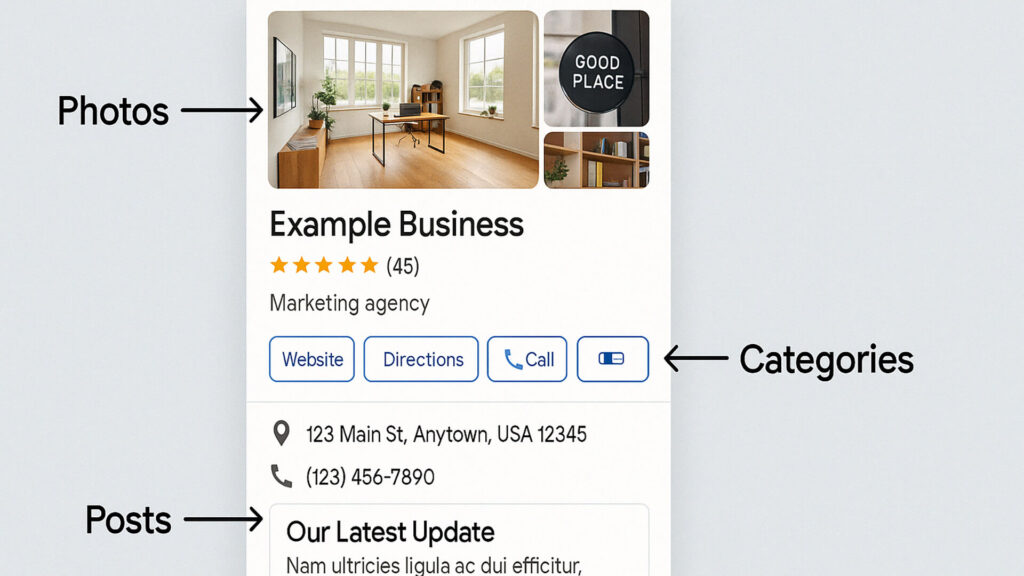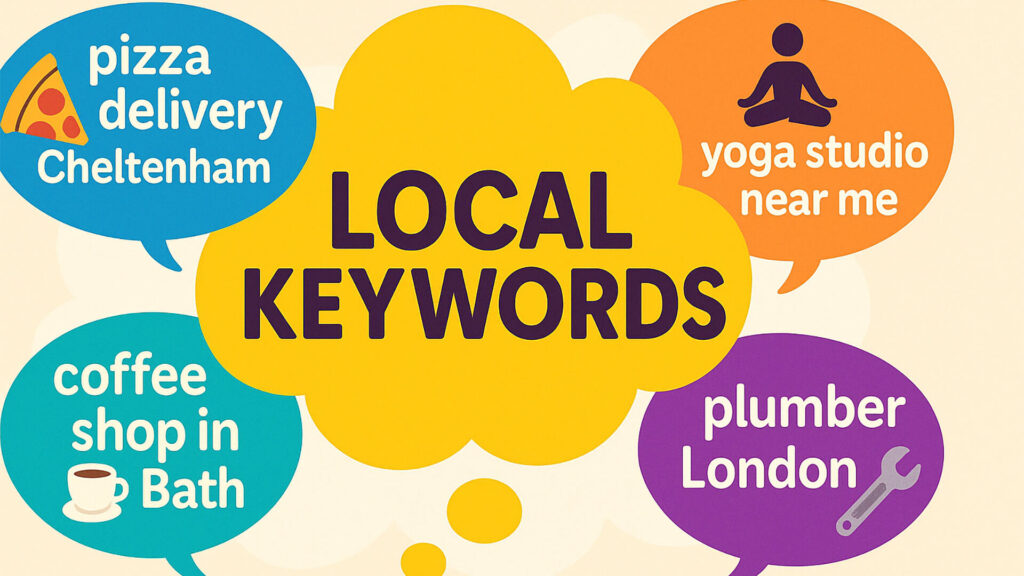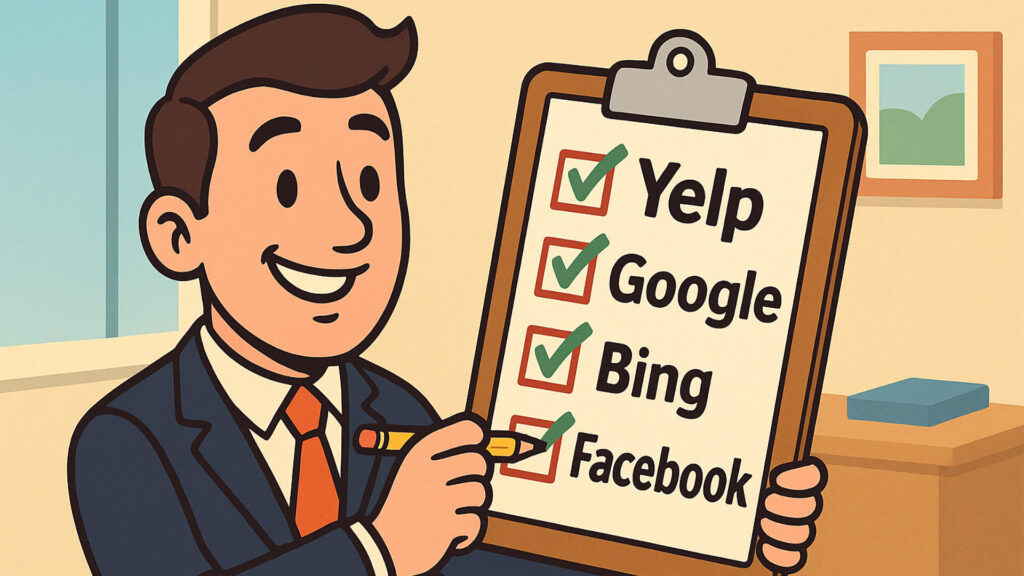SEO for Local Businesses: Quick Wins That Save You Money and Boost Visibility
Hey there! Ready to get your shop, café, or service biz popping up on Google without breaking the bank? SEO (Search Engine Optimisation) isn’t just for big corporations with fat budgets. With a few clever tweaks, you can boost your visibility, attract more customers, and save some serious cash. Let’s dive into some quick, actionable SEO wins tailored for local businesses like yours. Grab a coffee, and let’s make your business the talk of the town!
1. Claim and Optimize Your Google Business Profile (It’s Free!)
If you haven’t claimed your Google Business Profile (GBP) yet, stop reading and do it now. Okay, maybe finish this section first. GBP is your golden ticket to showing up in Google’s local search results and on Google Maps. Best part? It’s totally free.
Here’s the game plan:
- Claim your profile: Head to Google Business Profile, sign in, and claim your business.
- Fill out every detail: Add your business name, address, phone number, hours, and a snappy description. Don’t skip the categories—pick the ones that scream “this is us!”
- Add photos: Show off your storefront, products, or happy customers (with their permission, of course).
- Post updates: Share promos, events, or new menu items to keep things fresh.
A fully optimized GBP can push you to the top of local search results, and it costs you nothing but a bit of time. Pro tip: Respond to reviews (even the cranky ones) to show you care.

2. Nail Local Keywords Without Hiring a Fancy Agency
Keywords are the secret sauce of SEO, and for local businesses, it’s all about local keywords. Think “coffee shop in Cheltenham” or “plumber near me.” You don’t need a pricey SEO guru to figure this out.
Here’s how to do it on the cheap:
- Brainstorm like a customer: What would you type into Google to find your business? Write down 5-10 phrases.
- Use free tools: Pop those phrases into tools like Google Keyword Planner or Ubersuggest to see what’s popular and low-competition.
- Sprinkle them naturally: Add these keywords to your website’s homepage, about page, and service pages. For example, “Best tacos in Austin” sounds way better than “Tacos, tacos, tacos.”
Focus on long-tail keywords (longer, specific phrases) like “affordable dog grooming in Gloucester” because they’re easier to rank for and attract ready-to-buy customers. This DIY approach saves you from shelling out for expensive keyword research tools.

3. Get Listed in Online Directories (But Be Picky)
Online directories like Yelp, Yellow Pages, and local chamber of commerce sites are like digital phone books. Getting listed boosts your SEO by creating backlinks and making your business easier to find. But don’t go wild—stick to quality over quantity.
Here’s the lowdown:
- Start with the big players: Claim your business on Yelp, TripAdvisor (if relevant), and industry-specific directories like Healthgrades for doctors.
- Keep it consistent: Make sure your business name, address, and phone number (NAP) are identical across all listings. Google loves consistency.
- Skip the shady ones: Avoid directories that look spammy or charge a fortune for no real benefit.
Many directories offer free basic listings, so you can build your online presence without spending a penny. Bonus: These listings often show up in search results, giving you extra visibility.

4. Encourage Reviews (They’re Like Gold)
Customer reviews are SEO rocket fuel. They signal to Google that your business is legit and trustworthy, plus they influence potential customers. The best part? Happy customers are usually eager to help if you ask nicely.
Try these tricks:
- Make it easy: Add a “Leave a Review” link on your website or send a polite follow-up email with a direct link to your GBP or Yelp page.
- Ask at the right moment: After a great transaction, kindly ask for a review. For example, “Loved your haircut? We’d be thrilled if you shared your experience!”
- Don’t fake it: Never buy reviews or post fake ones. Google’s smarter than that, and it could tank your ranking.
Aim for a steady trickle of authentic reviews. Even a few glowing ones can make a big difference in local search rankings and customer trust.

5. Optimize Your Website for Mobile (Because Everyone’s on Their Phone)
If your website looks like it’s stuck in 2005 on a smartphone, you’re losing customers and SEO points. Google prioritizes mobile-friendly sites, especially for local searches, since most people are searching on the go.
Quick fixes:
- Test your site: Use Google’s Mobile-Friendly Test tool (it’s free) to see how your site performs.
- Speed it up: Compress images and use a fast hosting provider. Tools like PageSpeed Insights can point out what’s slowing you down.
- Keep it simple: Make sure your phone number, address, and “Book Now” or “Call Us” buttons are easy to find on mobile.
Many website platforms like Wix or WordPress have affordable templates that are already mobile-optimised, so you don’t need a developer. A zippy, mobile-friendly site keeps customers happy and Google impressed.

Wrapping It Up: Start Small, Win Big
SEO for local businesses doesn’t have to be overwhelming or expensive. By claiming your Google Business Profile, targeting local keywords, getting listed in directories, encouraging reviews, and optimising for mobile, you can boost your visibility and attract more customers without a huge budget. Pick one or two of these quick wins to start, and watch your business climb the local search rankings. You’ve got this!
Got questions or need a hand? Drop a message or on LinkedIn!
Stuart